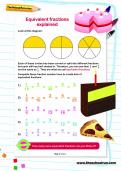Why music is important in the national curriculum

Music is a part of the national curriculum for all children up to the age of 14, or year 9.
The aim in classes is to develop your child's aesthetic judgement of different types of music.


Boost Your Child's English & Maths!
- Weekly programme for each school year
- Worksheets sent direct to your inbox
- Keeps your child's learning on track
Children also acquire the skills, knowledge and understanding needed to make music and to follow a music-related career, should they so wish.
The many benefits of music
It is well recognised that music can help to develop the skills, attitudes and attributes that can support learning in other national curriculum subjects. This includes listening skills, the ability to concentrate, creativity, intuitions, aesthetic sensitivity, perseverance, the ability to work in a group, self confidence and sensitivity towards others.
Music may also be able to directly help your child to learn. Interest in the effect of music on children's learning really took off with the discovery of what is now known as the ‘Mozart effect’. In 1992 the late Dr Gordon Shaw realised that students performed markedly better in reasoning tests after listening to a particular Mozart sonata.
He said the patterns and symmetries in Mozart's music are very cerebral and organised in a way that takes account of how our brains learn most effectively. It is said this helps to develop a child's spatial temporal reasoning skills, developing the ability to think in patterns and pictures. All children need this in order to understand concepts such as left and right, to balance and to avoid bumping into things. Later it helps with more complex skills, such as reading and understanding maps and graphs.
Music can also aid memory, which is why singing nursery rhymes and action songs are particularly good for a child's early development.

Give your child a headstart
- FREE articles & expert information
- FREE resources & activities
- FREE homework help








